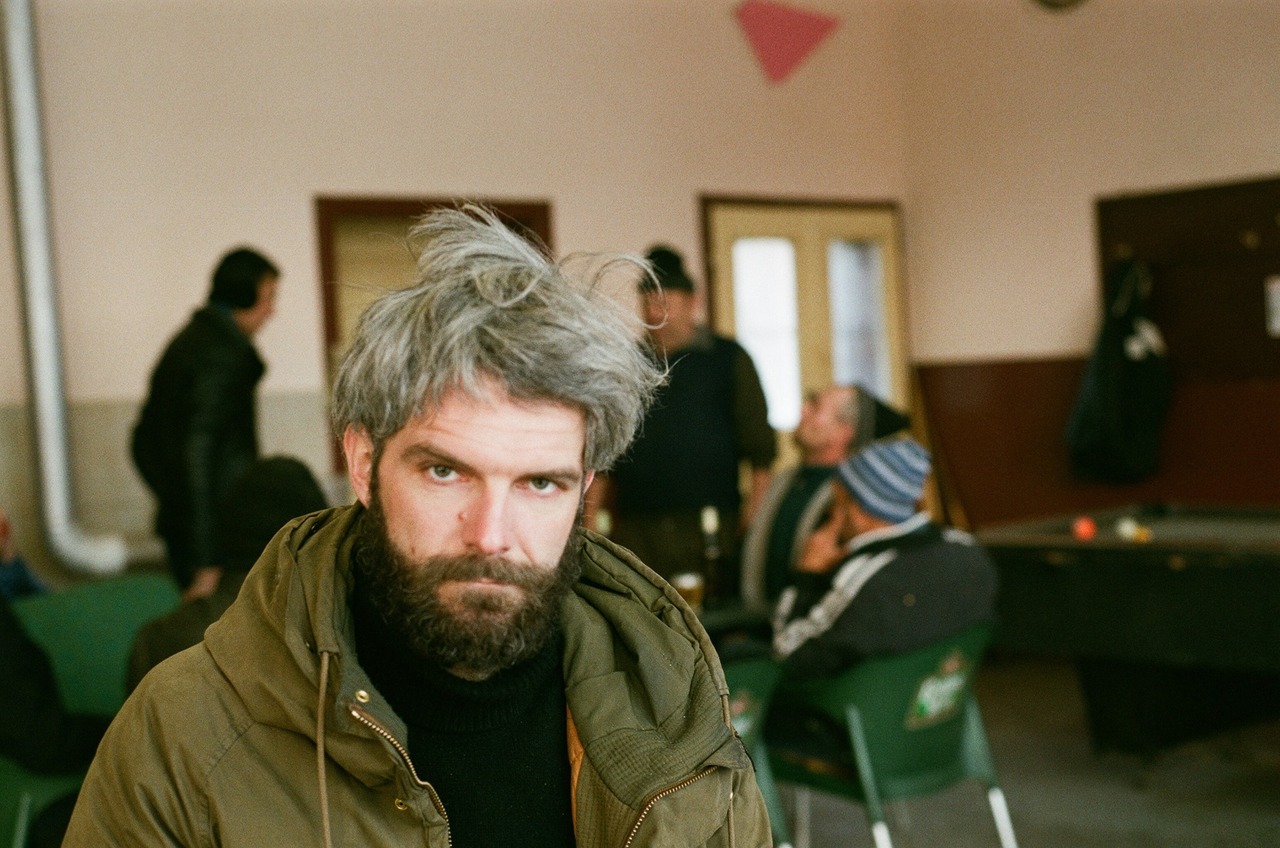Cultural Appropriation
You mentioned in one of our previous talks that while in Romania you chose a Romanian performance alias. What was it?
SF: I stayed all alone with my headphones but I chose an artistic name as I started learning Romanian, Strigoi Marțian Bolnav (Sick Ghost Martian). The first album I did, never released on a label, but still on my hard disk, it's called “Strigoi Martian Bolnav – Lăutărească veche din Transilvania.”
How do you fit in the Austrian cultural life?
SF: I am a Western white privileged man as it is said but it’s not really like that... if you look at certain facts it´s clear: I use signs which don’t represent modernity in an imperial way so I don’t represent the glory of wealth. I mean, we know that countries like Austria have colonial interests – especially in countries like Romania. And it’s clear that art, music and fashion are the “avant-garde tools” of colonial interest. If there is something strange, I mean something distorting the iconic truth of power, people get afraid and shut down the gates of information. Well - rats in deserted German organs in Romania are maybe not representing the aesthetic conditions of power. I could also say that this gig here in Bucharest is fitting very well because I am somehow part of the outernational condition.
Yesterday we had a panel on cultural appropriation – a vague term – but how do you position yourself in this regard?
SF: The whole discussion about cultural appropriation is a bit far from the way I think, because things are exotic if you don't know them. So if I have never been in Iran and I would just listen to Iranian music I would probably find it nice and exotic. Also you might think that because I'm playing Santur, I want to use something which is theirs. That would be the immediate thought about cultural appropriation. In my point of view this is very wrong because if Persians would wear sneakers or play an electric guitar nobody's complaining. This means we tend to make one culture exotic so it's outside the universal colonial culture and the other culture just universal. Statements like 'electronic music is universal' are true to a certain extent but a Santur is universal as well, isn't it?
So it's a sort of positive discrimination?
SF: Yeah, exactly. As I said, if you don't know something, it seems exotic. For me it’s very exotic to go to northern Germany or Scandinavia because I hardly know it. I lived in Romania and in Arab countries for a long time, so all of what I’m trying to express is part of my personal history and it's normal for me. It's more normal for me than to imitate the hegemonial styles of universal glory shining in every corner of this world...
Because even though it's more Western you didn't have any personal experience with it.
SF: If a Japanese is playing Mozart, than nobody screams cultural appropriation, because Mozart is universal, isn't it? Well, Mozart is just Austrian central European culture I would say. If an Austrian is playing Japanese koto music, he's labeled doing something exotic. I'm not ok with that because it s the reenactment of the colonial structure, I mean there is a universal hegemony in the world and anything else is exotic - world music, folk, foreign traditions – anything we didn’t learn from the media parents. As far as I know the Catholic Church claims to be universal as well... If a French person and a Scandinavian are doing an artistic collaboration – it’s called collaboration but if a Chinese and a Nigerian are collaborating, they're doing a multicultural collaboration – which is kind of odd. I mean the way culture is treated nowadays is like talking about race 90 years ago... In fact any culture could be a space of possibility. We tend to forget that. I started playing the Santur because I always liked it, I had this relationship with its sound, and it’s so much closer to me and to my heart than so many other things technically prescribed by industrial boredom. I like to transform the Santur to work it like a mad synthesizer. I definitely worked a long time to transform this small instrument into an elephant swimming in the Styx – saying hello to deranged creatures and entities. Who says what is universal and what is modern is in fact just a political thing. I mean what the hell – culture is in any case universal!
Most of the cultural appropriation is made from third world countries or poorer countries; so when Western people use their instruments and sound, for example, it turns into an issue of authenticity, where consciously (or unconsciously) you become a representative of a culture with which you don't have any actual connection to.
SF: Yeah – I mean European culture is, since centuries, nothing but an hermeneutic culture of interpreting mainly Middle Eastern texts and musical developments... Till now it seems as if Christianity is a European thing, it seems as if Jesus himself was a white trash prophet from the very beginning. Since the Roman church defeated the Turks in Vienna with knights wearing golden angel wings, Europe and all it ever interpreted became universal – more universal then even the absolute itself! It’s interesting to add that everything not explainable and out of immediate rational reach fell out of the grid of universality. Pepper is the basic ingredient for all and everything in Europe, but I have never seen it growing anywhere around... The difference between universality and culture – isn’t it the old story of Europe thinking that democracy and enlightenment are universal. In fact it's just European culture which came out of a special kind of idle euro-christianity mixed with bored Greek philosopher-fisherman and Italian shepards. Nowadays universality seems to have the form of a sneaker – European arts and science is a highly overrated and worn out stinky sneaker.





